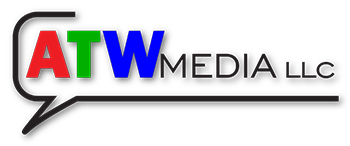Kellogg’s faces protests over food dyes in popular breakfast cereals
Posted/updated on: October 16, 2024 at 1:45 pm
(BATTLE CREEK, Mich.) Hundreds of people gathered outside the WK Kellogg headquarters in Michigan on Tuesday calling for the company to hold up its promise to remove artificial dyes from its breakfast cereals sold in the U.S.
Nearly 10 years ago, Kellogg's, the maker of Froot Loops and Apple Jacks, committed to removing such additives from its products by 2018.
While Kellogg's has done so in other countries including Canada, which now makes Froot Loops with natural fruit juice concentrates, the cereals sold in the U.S. still contain both food dyes and a chemical preservative.
In the U.S., Froot Loops ingredients include Red Dye No. 40, Yellow Dye No. 5, Yellow Dye No. 6 and Blue Dye No. 1.
Food activist Vani Hari, also known as the Food Babe on social media, spoke to the crowd of demonstrators at the cereal giant's offices in Battle Creek on Tuesday.
"I'm here for the moms, all the moms, who struggle to feed their children healthy food without added chemicals," she said.
In response to the protests, Kellogg's insisted its products are safe for consumption, saying its ingredients meet the federal standards set by the U.S. Food and Drug Administration.
The agency has said that most children experience no adverse effects from color additives, but critics argue the FDA standards were developed without any assessment for possible neurological effects.
The protests come in the wake of a new California law known as the California School Food Safety Act that bans six potentially harmful dyes in foods served in California public schools. The ban includes all of the dyes in Froot Loops, plus Blue Dye No. 2 and Green Dye No. 3.
The bill was passed by state legislators in August and signed by Gov. Gavin Newsom in September.
Studies suggest that consumption of said dyes and colorants banned under the new California School Food Safety Act may be linked to hyperactivity and other neurobehavioral problems in some children, as the California Environmental Protection Agency's Office of Environmental Health Hazard Assessment outlined in a 2021 report.
While there are still thousands of chemicals allowed for use in our country's commercial food system, many of those that have been reviewed by the Food and Drug Administration have not been reevaluated for decades. Red 40, for example, was last evaluated for health risks in 1971.
Reports from the American Academy of Pediatrics align with this push to reassess the safety of artificial food coloring.
California previously made history in October 2023, when Newsom signed AB 418 into law, a first-of-its-kind bill that bans four harmful chemicals from candy, cereals, salad dressings and other processed foods in the state starting in 2027.
That law will end the use of brominated vegetable oil, potassium bromate, propylparaben and Red Dye No. 3 in food products sold throughout the state.
Copyright © 2024, ABC Audio. All rights reserved.




